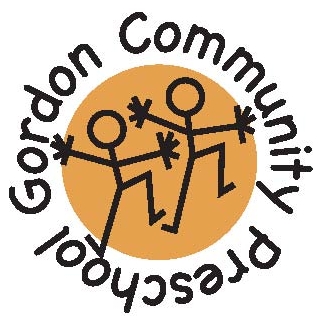Ten Tips for Helping Preschoolers with Concentration
1. Set realistic limits
Some child development experts have suggested that a good guide as to how long it’s reasonable for a preschooler to focus for is to multiply their age by 3–5 minutes. Each child is different and attention will vary depending upon the activity or task and on other factors such as distractions, tiredness, hunger etc.
Twenty minutes at the most is probably a reasonable expectation for a 3 -5 year old child.
2. Keep it interesting and fun!
Just like adults — children are more likely to stay on task if they are interested and engaged. Tap into their interests. If you are wanting your child to spend some time writing or drawing — how about asking them to draw something that they like — a dinosaur, a train, a favourite character from a book. Set the task around what they like to play with or talk about.
3. Model attentive behaviours
Children learn from watching the people around them and through their own experiences. Take time to listen attentively to your child and others around you. Perhaps you could start by having your child complete a task alongside you — while you are reading an article, doing some bookwork — so that both of you are concentrating together. Once you have done this a few times you might find your child is more practiced at staying on task.
4. Praise attributes and qualities — not just end results.
Next time your child brings you a completed puzzle, a drawing or a lego construction — try to find words that affirm persistence, effort and patience. “Wow — that must have taken you ages to build!”
“I can see how carefully you have worked on that”
“Good for you! It’s nice to spend time doing something you enjoy”.
Let your child know that it can be good to work on tasks alone.
5. Limit screen time
Research seems to suggest that too much screen time can have some negative impact on children’s capacity to concentrate on non screen tasks. The recommended guidelines for children aged 2–5 yrs that screen time be limited to 1–2 hours of high quality programming per day — with zero hours for children under 2 years of age.
6. Active play — let’s get physical!
The evidence is clear that physical exercise supports brain development and helps children develop concentration skills. Getting active helps heart and lungs, helps with bone development and with balance and posture. Physical activity also helps children to feel good. All these benefits aid and contribute to the ability to concentrate and stay on task.
7. Plan ahead
A little bit of forward planning might assist your child to independently play alone for some sustained periods of time. Spend some time helping your child know how to use/play with some of his/her toys. Play with her/him first and then set things up for some independent play. For example — if you have both built a track for a train, you could then suggest that your child adds some other elements to the railway — “how about you add some buildings and trees while I finish my report writing?” Then check back in before your child comes looking for you. “Nice work on the trees! — What’s next?” Maybe your child could help set up his/her own “busy box” filled with activities to do when others aren’t available to play.
8. Mindfulness and relaxation
It is important for children to have a positive sense of well being and the capacity to take in new information without being distracted by one’s own feelings or learnt responses.
Mindfulness is the act of paying attention in the present moment — doing it intentionally, without judgement. Mindfulness has many benefits — improves memory, assists with cognitive flexibility, physical and emotional benefits — all of which will help children to concentrate, stay on task and to remain engaged in learning. There are plenty of child friendly mindfulness and relaxation resources on line.
9. Achievable and familiar tasks
Returning to tasks your child is comfortable with and can easily achieve can be a nice way to help children develop skills of attending and concentration. Some easier tasks mixed in with something a bit more challenging can help keep young children (and adults for that matter!) engaged and involved.
10. Other considerations
There can be a tendency these days to over pathologise any behaviours in children which occur outside of what are considered to be “typical” behaviours.
If you have a child who is finding it very difficult to concentrate, it’s important to maintain a balance between being overly concerned and on the flip side possibly missing other factors which may be contributing to difficulty in attending.
Other considerations may include:
Is your child getting enough sleep? A bed time of around 7 or 7.30PM is a good guide for children aged 3–5 years. Generally speaking 3–5 year olds need about ten hours sleep per night.
Diet - Evidence points to diet as being key in ensuring that children are receiving the right nutrients for healthy brain, heart and body function
Anxiety - Consider whether your child is experiencing a level of anxiety about participating in certain tasks. Perhaps there are external factors worrying your child. Getting to the bottom of this issue and seeking support for your child may be worth considering.
Useful Links
Mindfulness For Children — Smiling Minds
Physical Activity Guidelines — Children birth — 5 years
Felicity Barclay (M.ECh; B.Ed (EC); Dip Tch (EC)
Director – Gordon Community Preschool, Sydney Australia













